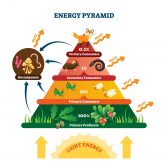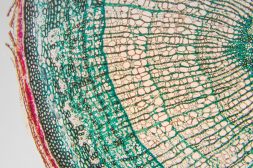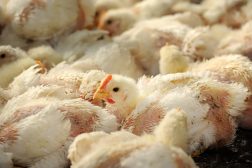Definition
noun
The process of taking in of dissolved organic compounds that are absorbed into the cells via extracellular digestions for nutrition.
Supplement
The organisms that used osmotrophy are known to be an osmotrophs which are usually found in protists and fungi although exclusively osmotrophic feeding in contemporary ecosystems are restricted to microscopic bacteria thereby used the process of osmosis for the movement of food although some macroscopic animals like molluscs, sponges, corals, brachiopods and echinoderms used osmotrophic feeding as supplemental food source.
Osmotrophy is an efficient means of gathering nutrients in microscopic organisms that relies on the surface area to ensure that proper diffusion occurs throughout the cell. When organisms increased in size the surface area per volume ratio drops and osmotrophy becomes insufficient to meet the nutrient demands.
In stagnant waters photoautotrophs has a relative advantage over heterotrophic osmotrophs since the flux of photon as energy source is not hindered at low temperatures thus, it depend on diffusion for mass acquisition through Brownian diffusion.
The fluid motion of osmotrophs is an impenetrable importance because asymptotic reactions occurs in the absence of fluid motion, thus movement bring closer to the cell that correspond to the highest gradients though diffusional core is safe on average concentrations.
See also:
• autotrophy
• heterotrophy
• phototrophy
• phagotrophy
• mixotrophy
Related terms:
• osmotrophic (adjective)
Dictionary > Osmotrophy
You will also like...

Running Water Freshwater Community Factors
This tutorial noted some of the physical and chemical factors that provide the framework of a running water community in..

Photosynthesis – Photolysis and Carbon Fixation
Photosynthesis is the process that plants undertake to create organic materials from carbon dioxide and water, with the ..

Freshwater Community Energy Relationships – Producers & Consumers
This tutorial looks at the relationship between organisms. It also explores how energy is passed on in the food chain an..

Plant Tissues
Plant organs are comprised of tissues working together for a common function. The different types of plant tissues are m..

Selective Breeding
Gregor Mendel's studies into Monohybrid and Dihybrid crossing and Charles Darwin's study of evolution and natural select..

Physical Development in Humans
This tutorial elaborates on the physical development of humans, particularly from puberty to adulthood. Read this tutori..

